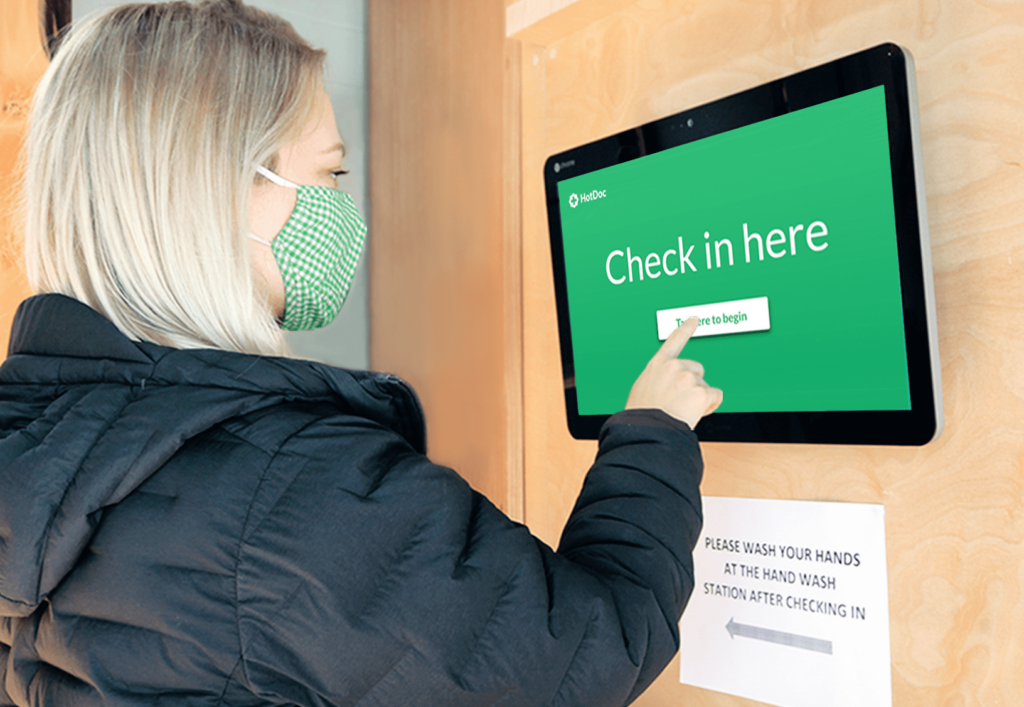Patient privacy appears to be the topic of contention in 2018. It seems a day doesn’t go by that the roll out of My Health Record’s ‘opt-out’ system isn’t called into question. Add to this the recent court hearing of Facebook CEO, Mark Zuckerberg, who was accused of mining user data for profit, and more recently, the controversy in Australia surrounding media reports of on-selling patient data by a private organisation, and it’s easy to see why many are losing faith in the confidentiality of their information.
In light of this controversy, we wanted to dig in and find out what privacy really means to patients. These patient perspectives are delivered firsthand in the accompanying video. Our intention with this video was not to point out the obvious — that confidentiality and patient privacy is crucial in order to build trust in the medical profession — but rather to give patients a platform to speak for themselves.
What Patients Think About Privacy
As patients become more aware of the various privacy scandals and data breaches plaguing the medical industry, they’re increasingly worried about privacy issues.
A recent study found that 69% of Australians are more concerned about online privacy than they were five years ago. 79% reported that they didn’t want their data shared with other organisations.
While naturally, most people want to keep all their personal information private from marketers and other third parties, there’s nowhere this seems to be more important than in the medical field.
Patients view their medical history as highly personal. One of our main takeaways from the the interviews was that patients view the entire patient journey — from booking an appointment to receiving a diagnosis — as enormously confidential. Many said that if any part of their private medical information was released throughout that process, they’d consider it a huge trust violation. And as Monika, a 52-year-old mother of three told us, “It only takes one second to destroy that trust.”
Unfortunately, that trust can be violated at many different points throughout the patient journey. Take the booking process, for instance.
The Booking Process
When it comes to booking a medical appointment, Laurence, a 38-year-old dad and HotDoc user told us, “I just want my information to go to the practice that I’m booking with. I don’t want to provide a third party any more of my information. It’s important to me because I don’t necessarily want phone calls from third parties I haven’t any use talking to”.
Laurence’s attitude was fairly typical among the patients we talked to, but patients’ concerns go far beyond the booking process.
Seeking Treatment
For instance, many patients are so concerned about privacy that they won’t seek treatment at all. This is particularly the case when it comes to treating illnesses that have a stigma surrounding them.
According to Dr. Deborah Peel, founder of Patient Privacy Rights,
…lack of privacy causes bad health outcomes. Millions of people every year avoid treatment because they know health data is not private
“This can especially affect people seeking treatment for cancer, mental illness, sexually transmitted diseases, and PTSD.
“And among patients who do seek treatment, they may be reluctant to disclose private elements of their medical history, particularly if they don’t understand why it’s relevant”.
For instance, when we asked 50-year-old Orlanda to explain her take on medical privacy, she noted, “I am very careful about what information I reveal.” Her criteria for whether she’ll provide information is if she thinks it’s “relevant, but not intrusive”.
Unfortunately, a reluctance to disclose information like sexual history, abortions, and mental illness diagnoses can affect treatment. Ultimately, patients pay the cost, receiving less effective treatment than they might have gotten otherwise, had they been more forthcoming.
After a Diagnosis
Patient privacy is also a big concern after a distressing diagnosis. For instance, Jacqui, a 52-year-old HotDoc user told us, “A medical situation is, I think, deeply personal. I think it can be very serious. Another third party may not know that Joe Bloggs has only got four weeks to die of cancer, the next minute he’s getting advertising or whatever. That’s why I feel it’s highly inappropriate, because you really don’t know.
“You know, you have all kinds of people that have products in the medical field and I can appreciate that perhaps they’re looking for ways to promote their product but promoting it via a doctor or clinic, I would not be happy about that–at all. I feel that privacy’s the most important thing for me”, she added.
It Comes Down to Trust
While patients feel strongly about privacy for a number of different reasons, the one cited most frequently was trust. Again and again, patients expressed the importance of being able to trust that their medical information was safe in the hands of their healthcare providers.
For instance, Bob, a 64-year-old HotDoc user told us, “You expect that confidentiality. You’re providing information that’s supposed to be confidential and secure and then to find out that someone else has that information is a terrible violation”.
Elliot agrees. When the 24-year-old was asked about medical information being shared with third parties, he said, “…that information in the hands of some large company that’s trying to paint a picture about us can be sinister.
I do think it’s different in the health field because we’re talking about the most personal secrets or the most personal pieces of information that an individual has, so to give that information to someone that I haven’t chosen to give it to is just simply wrong.
“I feel that doctors should be required to have my health and security of my own personal information at the forefront of what they do. They shouldn’t be allowing some company to profit off my personal situation. They should just be focusing on me getting better”, he said.
What Medical Professionals Need to Know About Privacy
Patients have very strong feelings about their medical privacy. While most medical professionals understand that it’s important to protect patients’ privacy so they can adhere to the law, they’re probably less likely to think about the implications of privacy on their bottom line. Yet, protecting patient privacy can definitely impact a clinic’s overall revenue, because it leads to continuity of care.
Jacqui, for instance, has had an 18-year relationship with her general practitioner, who she sees regularly for skin cancer checks. The reason the relationship has continued for so long is due to trust, and she readily admits that she’d feel less trusting if her information was breached.
Jacqui is a perfect example of how protecting patients’ privacy leads to a continuity of care and ultimately, a more successful clinic. Even better, that continuity of care isn’t just good for providers, it’s also great for patients because they then experience better health outcomes.


